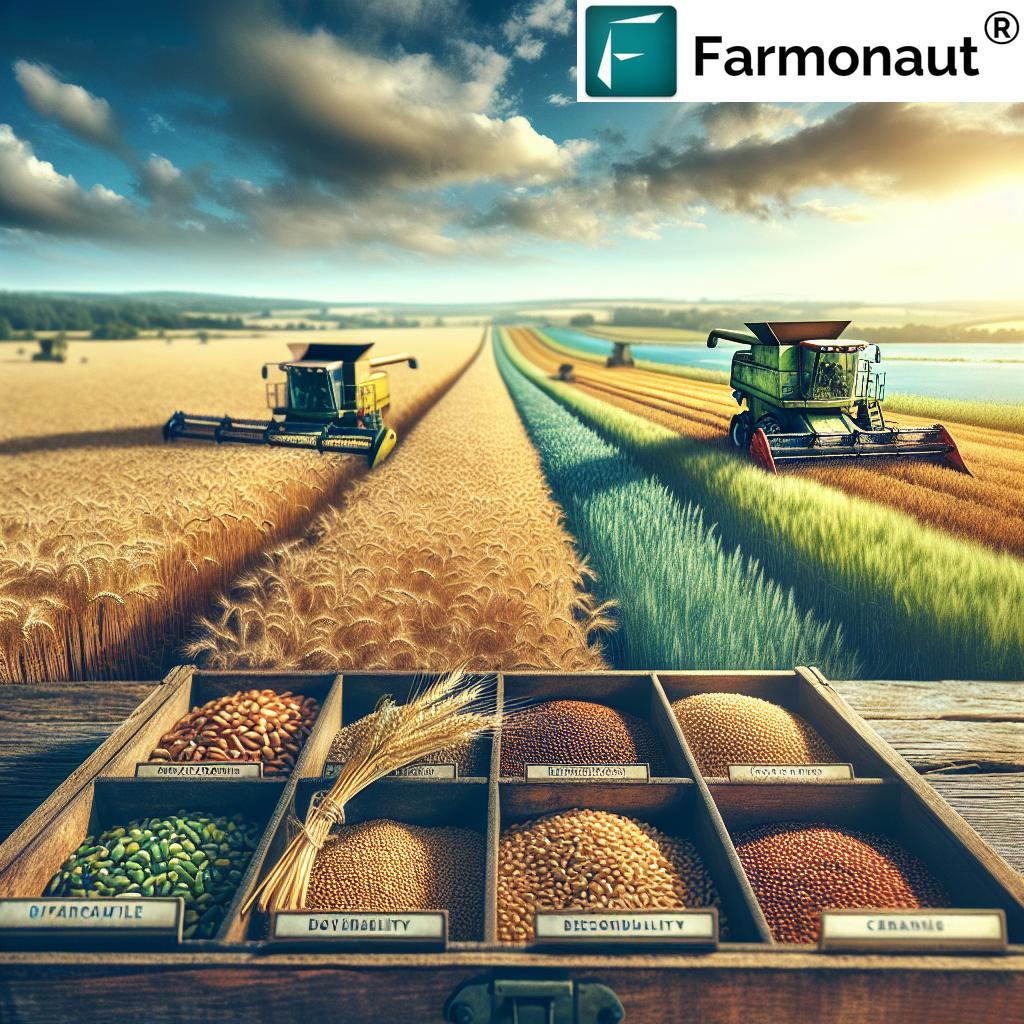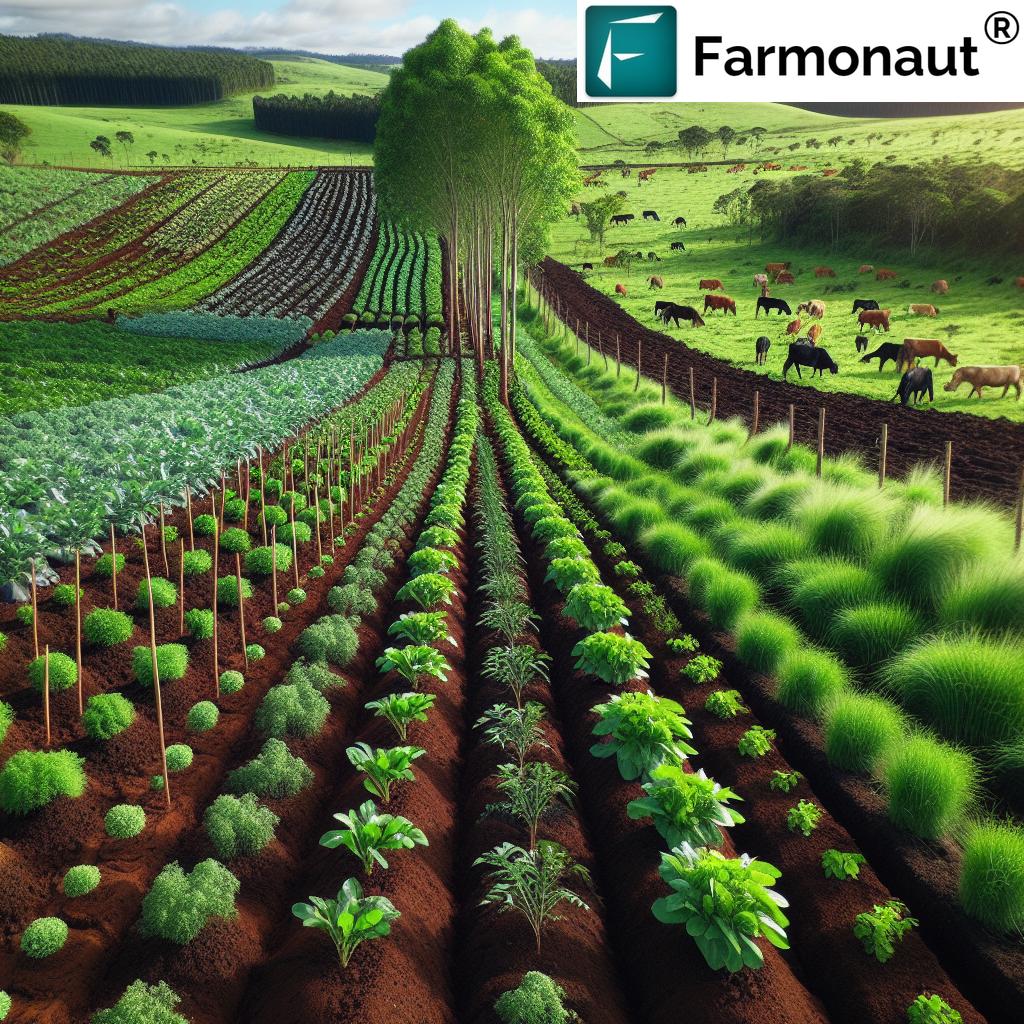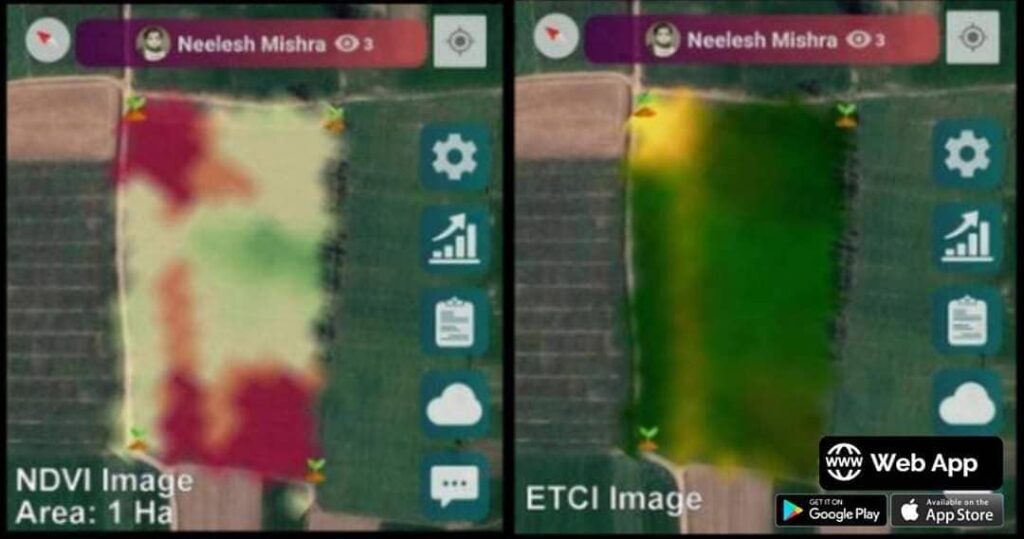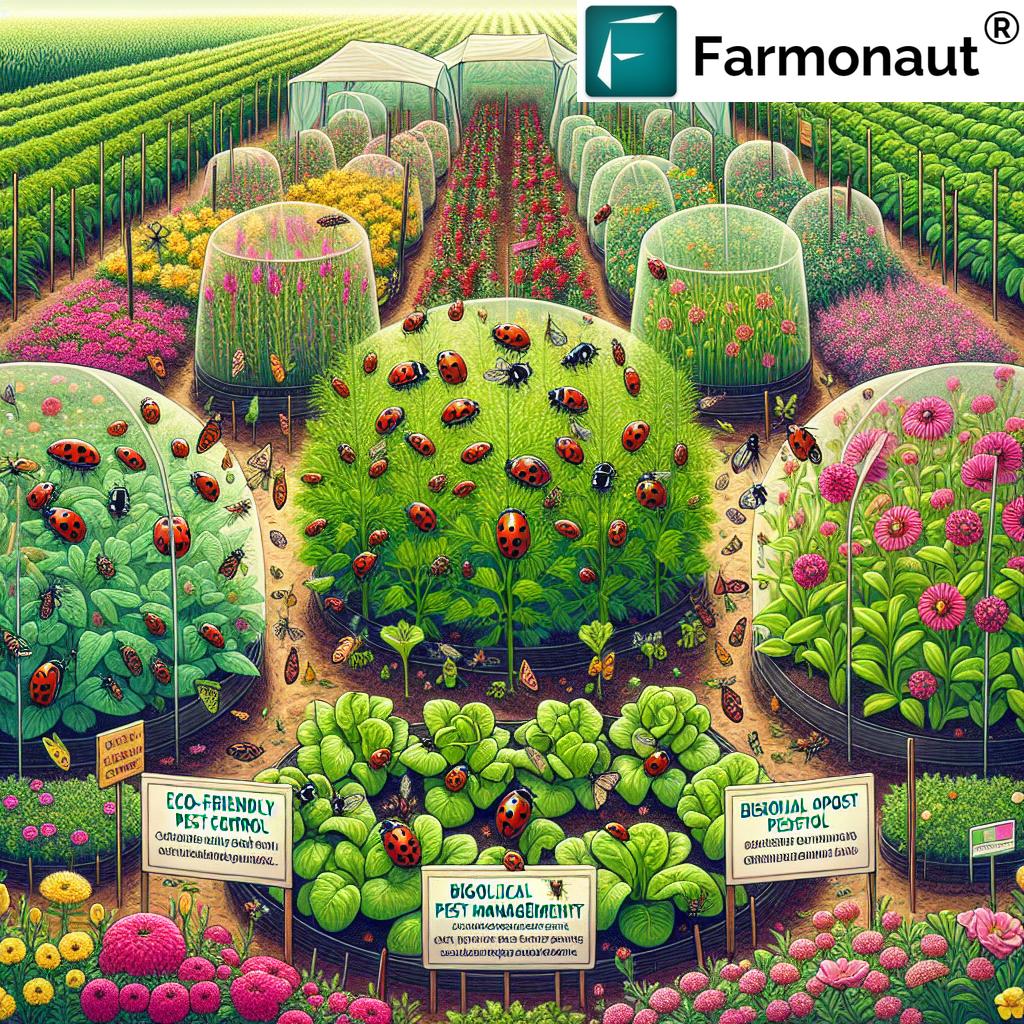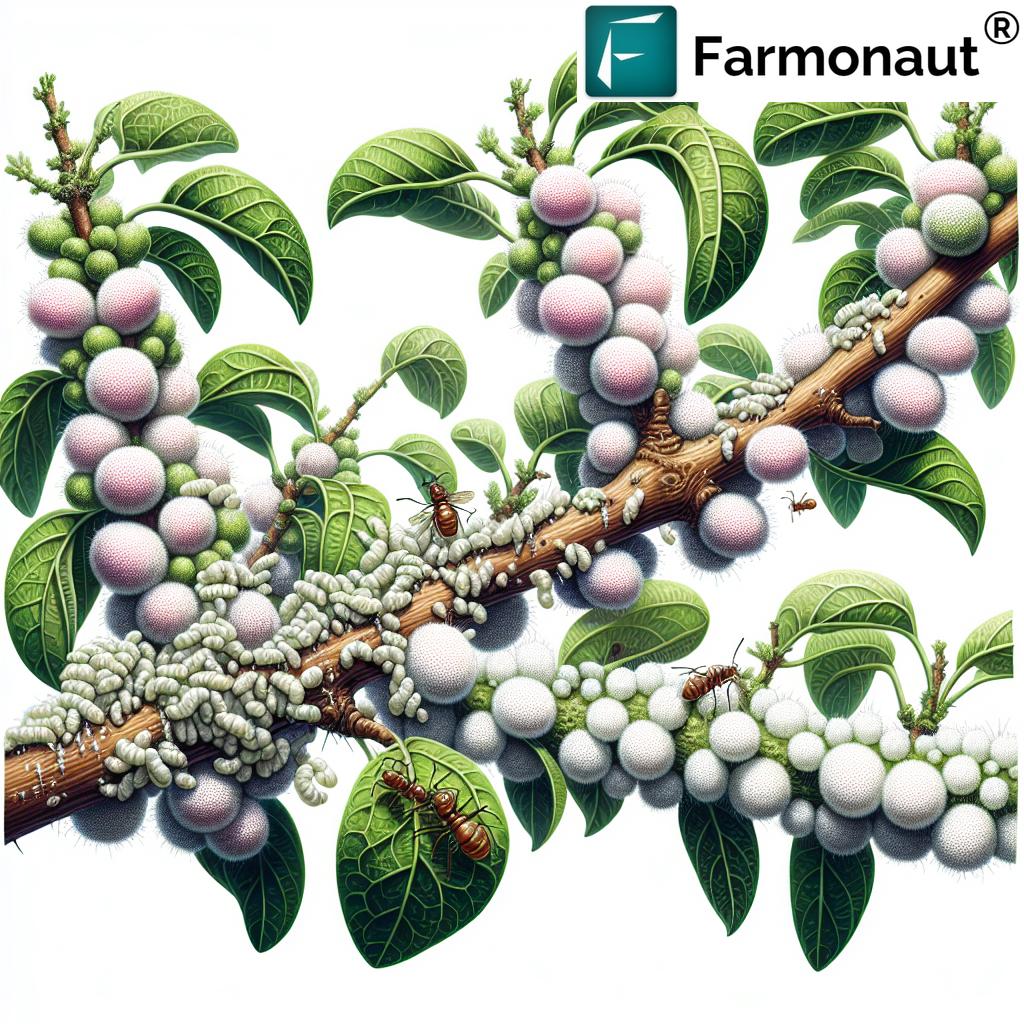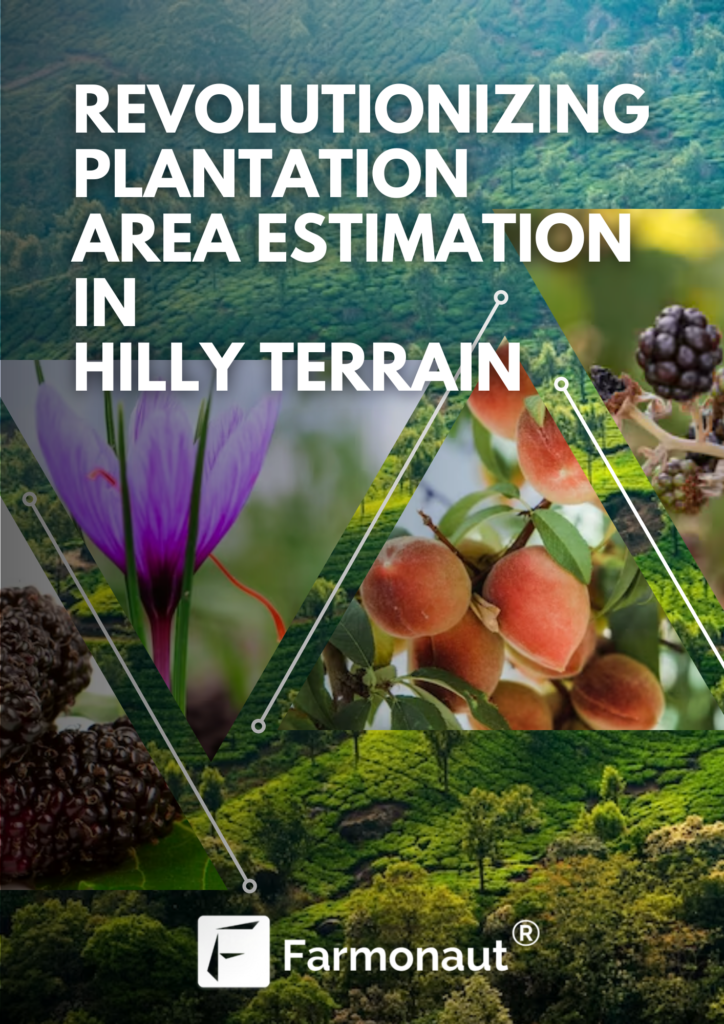Identity-Preserved Grains: 7 Surprising Perks Unveiled!
“Identity-preserved grains can boost traceability accuracy by up to 95%, ensuring premium quality and transparency in the supply chain.”
Table of Contents
- Introduction
- Understanding Identity Preservation in Agriculture
- How Grain Traceability Systems Work
- Identity Preserved Grains: 7 Surprising Perks Unveiled
- Identity-Preserved Grains vs. Conventional Grains: A Comparison Table
- Sustainable Grain Farming Practices and Environmental Impact
- The Role of Technology and Farmonaut in Advanced Grain Traceability
- Quality Assurance and Grain Supply Chain Transparency
- Key Challenges and Considerations in Identity Preservation
- Future Trends: The Expanding Market for Specialty and Traceable Grains
- Accessing Farmonaut Solutions
- Frequently Asked Questions
- Conclusion
Introduction: The Rise of Identity Preserved Grains in Modern Agriculture
In today’s rapidly evolving food industry, identity preserved grains are emerging as the cornerstone of quality, transparency, and sustainability. As consumers and manufacturers demand greater assurance about food origins and handling, identity preservation in agriculture is changing the way we cultivate, process, and distribute grain products. This informative guide explores the transformative impact of identity preservation, delving deep into grain traceability systems, quality assurance in the grain supply chain, and sustainable grain farming practices that are shaping the future of agriculture.
We’ll uncover the surprising perks of identity preserved grains, explain how sophisticated tracking and documentation techniques enhance both quality and consumer trust, and examine how technology companies like Farmonaut are making traceability and sustainability more accessible than ever before.
Understanding Identity Preservation in Agriculture
Identity preservation is an advanced agricultural system focused on tracking, documentation, and monitoring of specific grain characteristics at every stage, from planting to distribution. By segregating and documenting each batch, IP systems guarantee that key characteristics—such as grain variety, size, color, composition, and flavor—remain consistent and verifiable.
This approach prevents the commingling of different varieties, ensuring that each grain product maintains its origin and the attributes that set it apart within the supply chain. It’s a revolution in agricultural practices, answering the call for traceability and quality assurance in grain supply chain management.
Key Features of Identity Preserved Grains
- Meticulous Tracking & Documentation: From seed selection to distribution, every step is recorded and traced.
- Prevention of Cross-Contamination: Specialized handling, processing, and storage facilities preserve the integrity of each grain batch.
- Quality & Origin Verification: Consumers and manufacturers can trust the stated origin and characteristics of identity preserved grains.
- Premium Product Positioning: These grains often command higher prices thanks to tangible quality benefits and documented traceability.
Why is Identity Preservation Important?
The modern food industry has witnessed increasing demand for food safety, transparency, and unique product qualities. Identity preservation in agriculture allows producers and companies to provide end-to-end information about their grain products—meeting evolving consumer preferences and regulatory standards, and building lasting brand loyalty.
From Seeds to Supply: The Stages of Identity Preserved Grains
- Seed Selection: Begins with choosing specific varieties, tailored to market or industry needs (for example, non-GMO, heritage, or premium wheat varieties).
- Planting and Cultivation: Strict protocols are followed for planting, irrigating, and managing the crop’s health.
- Harvesting and Handling: Dedicated equipment and storage facilities prevent commingling and preserve the product’s identity.
- Processing, Storage & Distribution: Each stage involves continued tracking and documentation to provide granular detail and traceable records that follow the grain to the final customer.
How Grain Traceability Systems Work
Let’s follow the journey of a typical identity-preserved grain:
-
Seed Selection:
- Farmers choose seeds verified for particular traits.
- Documentation includes seed batch numbers and origin records, crucial for traceability.
-
Planting & Cultivation Practices:
- Standards ensure that only dedicated plots and approved inputs are used—compliance is closely tracked.
- Soil health, irrigation, and pest management data are all recorded.
-
Harvesting:
- Specialized harvesting equipment and scheduling prevent mixing with other grains.
-
Handling and Storage:
- Each batch is stored in designated bins or facilities, with robust monitoring and access controls.
-
Processing and Distribution:
- Data travels with the product; batch integrity is checked during processing and distribution steps.
- Unique identifiers such as barcodes or RFID may be used for ongoing grain traceability.
Thanks to the development of technology-driven solutions—such as those offered by Farmonaut’s Blockchain-based Product Traceability—these processes are now more accurate, transparent, and tamper-resistant than ever before. Blockchain helps preserve identity across the entire supply chain and has become integral in grain traceability systems worldwide.
Identity Preserved Grains: 7 Surprising Perks Unveiled
“Sustainable grain practices can reduce environmental impact by 30%, supporting eco-friendly agriculture and healthier ecosystems.”
-
Unmatched Grain Traceability and Origin Verification
Identity preserved grains offer transparency from farm planting to final distribution. Robust grain traceability systems grant consumers and manufacturers consistent, verifiable records of crop origins and handling practices—an immense benefit for regulatory compliance, export requirements, allergen warnings, and food safety recalls.
- Grain origin verification ensures that specialty, organic, or non-GMO claims are backed by real-world data.
- Up to 95% traceability accuracy has been observed in some advanced identity-preserved systems.
-
Superior Quality Assurance in Grain Supply Chain
Rigorous tracking minimizes quality drift and contamination, so producers can guarantee key traits such as color, composition, size, and flavor. This results in premium grain products that cater to exacting market preferences.
- Food and ingredient manufacturers can confidently advertise grain qualities for specific applications (e.g., baking, brewing, specialty cuisine).
- Consistency builds trust and repeat buying among consumers.
-
Premium Prices for Farmers and Producers
Because these grains are differentiated by their verifiable origin and quality, they can command up to 25% higher prices in premium and specialty markets—from wheat to soybeans, corn, and heritage varieties. Market differentiation allows producers to build direct relationships with buyers and build brand loyalty.
-
Sustainable Grain Farming Practices
IP systems often embrace more sustainable protocols: crop rotation, reduced chemical inputs, improved soil health, and climate-friendly cultivation. For example, Farmonaut’s carbon footprint tracking solutions (see more) quantify emissions, helping drive measurable impact.
- Estimated 30% reduction in pesticide use among many identity preserved operations.
- Supports eco-labeling and sustainable brand narratives.
-
Enhanced Consumer Trust and Brand Transparency
With each product backed by verifiable records, consumers gain confidence in food safety, labeling, and producer claims—ultimately fostering greater trust and strengthening premium brand positions.
- Blockchain-based traceability solutions (like those delivered by Farmonaut, learn more) build accountability, marketplace compliance, and resilience against food fraud.
-
Easier Compliance with International and Domestic Standards
Countries and food industry players worldwide are tightening rules around labeling, organic/non-GMO status, sustainability, and allergen reporting. IP grains make regulatory compliance easier for producers and exporters.
- Built-in audit trails simplify certification for organic, Kosher, Halal, fair trade, and country-of-origin labeling.
-
Unlocking Market Access & Innovation
With robust traceability and assured quality, grains unlock niche and value-added markets—such as ancient grains, craft baking, specialty brewing, and plant-based protein applications. This gives producers new ways to differentiate products and diversify income streams.
Identity-Preserved Grains vs. Conventional Grains: A Comparison Table
| Feature/Aspect | Identity-Preserved Grains | Conventional Grains | Estimated Environmental / Supply Chain Impact |
|---|---|---|---|
| Traceability Level | High (up to 80%+ with advanced systems) | Low (often less than 20%) | Strong assurance of product origin and quality—key for food safety and recall protocols |
| Product Quality | Premium, consistent, tailored | Standard, variable | Reduces product recalls/failures, enhances consumer satisfaction |
| Farmer Premium | Yes (up to 25% higher market rate) | No (standard market value) | Higher farm profitability encourages best practices |
| Sustainability Practices | Widely adopted, monitored | Variable, sometimes absent | Estimated 30% reduction in pesticide use, improved soil health |
| Consumer Transparency | Full—supported by detailed documentation | Limited; little record of crop journey | Builds trust, accountability, and compliance ease |
| Pesticide Usage | Low (up to 30% reduction) | Higher—often unregulated | Reduces chemical runoff; better ecosystem impact |
| Market Demand Growth | High (10% annual increase) | Stable or declining | Drives innovation, product diversity, and value creation |
Did you know? Developers and agribusinesses can harness the power of Farmonaut’s satellite-weather data API for real-time farm monitoring and efficient traceability integration.
Check out the API or dive deeper with the comprehensive
Developer Docs.
Sustainable Grain Farming Practices and Environmental Impact
Sustainable grain farming practices aren’t just good for the environment—they’re great for business. Identity preservation programs often align with conservation goals, leveraging crop rotation, soil management, smart irrigation, and chemical minimization to foster long-term resilience in our food supply.
- Lower Environmental Footprint: Sustainable identity-preserved systems can reduce pesticide and fertilizer use, conserve water, and improve biodiversity on farm landscapes.
- Real-Time Carbon Footprinting: With Farmonaut’s carbon emission tracking tools, producers can monitor and reduce their CO2 output for regulatory compliance and green labeling.
- Enhanced Ecosystem Health: Practices such as cover cropping and field margin preservation support pollinators, soil microbes, and wildlife.
- Efficient Resource Allocation: Platforms like Farmonaut Fleet Management optimize equipment and vehicle usage—mitigating fossil fuel emissions while increasing operational safety and cost-efficiency.
The Role of Technology and Farmonaut in Advanced Grain Traceability
Digital transformation in agriculture is empowering us to take full advantage of the identity preservation revolution. Farmonaut’s platform is at the forefront, offering tools that make measurement, recordkeeping, and reporting easy, reliable, and affordable for both smallholder farmers and large agribusinesses.
Key Farmonaut Technologies:
-
Satellite-Based Crop Health Monitoring: Using advanced satellite imaging, Farmonaut enables real-time monitoring of vegetation health (NDVI), soil moisture, and pest/disease hotspots.
- This keeps farmers informed to optimize cultivation strategies, safeguard crop quality, and precisely manage inputs.
- Reduces resource wastage and supports sustainability goals.
-
Blockchain-Based Traceability: Establishes tamper-proof, end-to-end records, enhancing grain supply chain transparency and preventing fraud.
- Ideal for verification of origin, quality assurance, and compliance with food certifications.
- AI-Powered Advisory (JEevn AI): Personalized, real-time guidance for planting, irrigation, pest management, and harvesting—enabling smarter decision-making at every stage.
- Fleet and Resource Management: Optimize the use and scheduling of agricultural machinery, reducing operational costs and emissions.
- Carbon Footprinting: Track, analyze, and reduce greenhouse gas emissions across farm practices (see more at Carbon Footprinting).
By making sustainable grain farming practices accessible, Farmonaut’s app and API open doors for every stakeholder—driving both productivity and environmental leadership.
Quality Assurance and Grain Supply Chain Transparency
The journey from seeds to shelves involves numerous checkpoints—each playing a vital role in preserving grain identity and meeting quality assurance in grain supply chain. Some of the most crucial checkpoints include:
- Seed Sourcing: Verified, certified, and recorded to prevent mix-ups or contamination.
- Segregating at Harvest: Each lot is handled individually; data is logged at every transfer point.
- Dedicated Storage and Processing Facilities: Reduce the risk of accidental mixing or loss of product integrity.
- Continuous Documentation: Blockchain integration provides unbroken, auditable records accessible for audits or recalls—a huge leap forward for safety and accountability.
- Distribution and Final Packaging: Maintains confirmed identity and origin right up to the point of sale.
Why Transparency Matters
In a world where consumers want to know “where their food comes from,” grain supply chain transparency is a significant selling point. It boosts trust, meets evolving industry regulations, and opens new markets for premium grain products.
Key Challenges and Considerations in Identity Preservation
While the benefits are compelling, implementing identity preservation in agriculture is not without its hurdles:
- Cost Implications: Initial investment in specialized equipment, monitoring systems, and training can be substantial. However, platforms like Farmonaut are bridging this gap by offering affordable, scalable digital solutions accessible on mobile and web.
- Supply Chain Coordination: Success demands collaboration among farmers, processors, distributors, and retailers—requiring shared standards and robust communication.
- Market Demand: Long-term sustainability hinges on consumer awareness and willingness to pay a premium for transparent, traceable, and sustainable grains.
- Authentication: Periodic field audits and digital verification (blockchain and satellite monitoring) are needed to maintain confidence in the IP system.
- Data Management: Storing, analyzing, and protecting sensitive supply chain data is an ongoing challenge as privacy and cybersecurity threats evolve.
Future Trends: The Expanding Market for Specialty and Traceable Grains
The demand for specialty grain production and premium grain products is surging globally. As more companies embrace grain supply chain transparency and industry standards, we’ll see:
- More farmers accessing digital traceability and sustainability platforms through apps and APIs.
- Higher premiums and new market opportunities for verified, non-GMO, organic, ancient, or gluten-free grains.
- Wider use of data analytics (crop health monitoring, fleet/resource management, carbon tracking), boosting both productivity and eco-friendly practices.
- Increased integration between financial services and agri-tech (see Farmonaut’s crop loan & insurance verification) through satellite-based risk assessment and crop authenticity checks.
- Improved compliance and reporting—increasingly important as food safety and environmental standards evolve worldwide.
Accessing Farmonaut Solutions: Mobile, Web, and API Power Ups
Navigating the journey towards sustainable, identity-preserved grain production is now easier than ever. Farmonaut provides an ecosystem of apps and digital solutions designed for farmers, agribusinesses, and researchers. Benefit from:
-
Mobile Monitoring: Download Farmonaut’s Android (Google Play Store) or iOS apps (App Store) to monitor crop health, receive AI-based advisories, and track supply chain data on the go.


-
Web/Browsers: The web dashboard offers seamless access to traceability, data analytics, carbon tracking, and farm management features from anywhere.

- API Access: Integrate satellite/weather insights, carbon footprinting, and supply chain traceability directly into your own digital tools with Farmonaut’s robust API. Start integrating now.
Discover Affordable Precision Agriculture Subscriptions
Frequently Asked Questions (FAQs) about Identity Preserved Grains
What are identity-preserved grains?
Identity-preserved grains are agricultural products whose unique characteristics (such as variety, origin, and quality traits) are maintained, tracked, and documented throughout the supply chain from planting through distribution. This system prevents mixing and ensures verification of quality, origin, and handling.
How do grain traceability systems benefit consumers?
Grain traceability systems provide consumers and food manufacturers with reliable information about the grain’s origin, quality, and journey. This enhances food safety, supports informed buying decisions, enables quick recalls in case of contamination, and fosters overall trust in the food supply.
Why do identity-preserved grains often command higher prices?
Identity-preservation allows producers to guarantee specific traits that meet niche or premium market demands. Verified quality, unique variety, and transparent handling add commercial value, allowing these products to be sold at premium prices (up to 25% higher).
What role does sustainability play in IP grain systems?
Sustainable grain farming practices are central to IP systems. These practices reduce chemical usage, conserve resources, and improve long-term ecosystem health. Many identity preserved operations adopt rigorous sustainability standards, often supported by digital tools such as carbon footprinting solutions.
How is technology like Farmonaut improving the identity preservation process?
Companies like Farmonaut leverage satellite imagery, AI, blockchain, and APIs to automate crop health monitoring, enable real-time advisory, and deliver unbroken traceability records. Their affordable, scalable platforms help both individual farmers and agribusinesses participate in the identity preserved grain ecosystem with maximum transparency and efficiency.
What are typical challenges for farmers adopting IP grain systems?
High setup costs, the need for specialized training and equipment, and the complexities of multi-party supply chain coordination are common challenges. However, the rewards—higher premiums, sustainability, and market access—often justify the investment, especially as digital solutions become more widespread.
Which types of grains are best suited for identity preservation?
Wheat, soybean, corn, rice, barley, ancient/heritage varieties, and high-value specialty grains (such as gluten-free or organic products) are commonly targeted for identity preservation, depending on region and market demand.
Conclusion: Elevate Your Farming and Food Supply with Identity Preserved Grains
As world food systems continue to evolve, identity preserved grains stand out as a beacon of quality, traceability, and sustainability. By embracing robust documentation, specialty production, and transparent supply chain practices, we can meet modern consumer demands for better food, safeguard our soils and ecosystems, and grow a marketplace where everyone—from farmers to food brands—thrives.
Now, with digital tools and platforms such as Farmonaut, every producer, logistics partner, or entrepreneur can join the premium grain movement. Whether you’re focused on origin verification, specialty grain production, or quality assurance in your grain supply chain, the opportunities to differentiate, innovate, and lead are at your fingertips.
Take the next step towards premium, transparent, and sustainable grain production—experience identity preservation with Farmonaut’s digital innovation!



